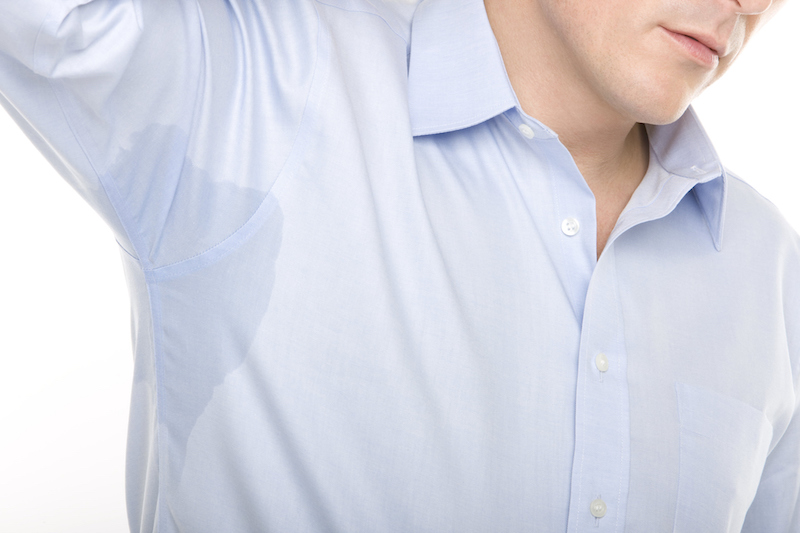UAE weather: This is why Dubai gets so humid at this time of year
Winter is coming, sort of…
It doesn’t take a meteorologist to tell you that temperatures have already climbed down from those fiery summer highs. But with the prevailing humidity levels in coastal regions, unbundling the hoodies from their space in the top of the wardrobe, still feels a little while away.
We’ve got more on when we can expect things to cool down, a little further on.
Why does it get so humid this time of year?
Disclaimer. We’re going to use the words ‘moist’ and ‘sticky’ in the following paragraph, and whilst we acknowledge these are trigger words for some, it’s practically impossible to discuss the topic of humidity without them.
The main culprit for why we get these moist nights, evenings and mornings in the UAE around this time of year, is a change of dominant air pressure system in the Gulf. More specifically, it’s the return of high pressure cells in the waters to the North of the UAE. There’s also the fact that this large body of adjacent water (the Gulf) has been heated all summer long, and heating any water reservoir will lead to greater localised humidity.
The UAE’s weather in September is also characterised by a game of off on-shore and off-shore breezes. On-shore breezes, from the sea, bring humidity with them as a sort of ‘I was just passing and thought I’d drop in and say hi’ gift, peaking when the land’s surface is being heated during the day. It’s a little thing called convection sweaty.
To each their dew
There’s also something called the ‘dew point’ which comes into play and affects how we sweaty humans experience the humidity. So much so in fact, that experts now tend to agree it’s a more effective measure of what temperatures ‘feel like’ than relative humidity itself. It’s a pretty complicated concept, but the headline notes read – it’s the temperature at which a certain quantity of air can hold no more water, and thus invites the formation of water droplets. The lower the dew point, the more comfortable the experience, especially on hot days.
What dictates where the dew point falls? Humidity, and ambient temperature. It’s all connected.
Why is it often more humid in the evenings?
It’s that pesky dew point again. Hot air holds more moisture, so during the day, the warmer air is able to absorb more water. With nightfall, the cooling air can hold less moisture and so the temperature required for humidity to get to ‘itchy back levels’ also drops.
So in brief – it’s humid because of the changing pressure systems; the changing winds; dew point shinanigans; and moisture being blown onto land from the sea.
Why do we sweat so much in humid conditions?
When we’re warm, our bodies sweat as part of their inbuilt equilibrium mechanism. The energy exchange from the evaporation of that sweat is what cools us down.

When weather reports are telling us there are high levels of humidity in the air (like for example those figures of 90 per cent we occasionally look down the barrel of this time of year), it means that the air is saturated with moisture. This then leads to your sweat not being absorbed, and thus the body, your body, all of our bodies, remain uncooled.
When can we expect the humidity to die down?
According to the upcoming five day forecast bulletin from the UAE’s National Centre of Meteorology, the humidity looks set to stay with us until at least Tuesday. As is often the case (see above), it’s the nights when you’ll really feel that dampness in the air.
We can also expect “light to moderate … winds, freshening at times”, and partly cloudy skies.
You know nothing Jebel Snow
Winter, is coming though. The lowest temp recorded today across the UAE was just 18.4º (in Al Ain naturally), that’s a big drop compared to even just a few days ago.
#أقل_درجة_حرارة سجلت على الدولة صباح هذا اليوم 18.4 درجة مئوية في ركنة (العين) الساعة 05:30 بالتوقيت المحلي لدولة الإمارات.#The_lowest_temperature recorded over the country today morning is 18.4 °C in Raknah (Al Ain) at 05:30 UAE Local time. pic.twitter.com/8Ce0bSqDFO
— المركز الوطني للأرصاد (@ncmuae) October 6, 2023
So there you have it. More fresh, less moist. Might just be time to start packing the beach bag.
Images: Getty
